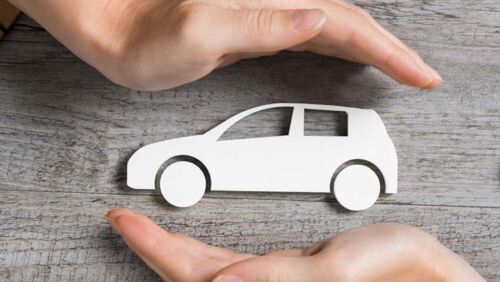Why you're less of an adult while you still live at home
By Marcus Padley
One day the mollycoddling will end and the kids will be responsible for themselves
My first mode of transport was a Honda C70 step-through motorcycle. The 70 stood for 70 cubic inches of raw power.
That bike got me through my first year at university in the UK. I once rode home 55 miles through sleet and thick snow and didn't think twice about it.
My first car was a Citroen 2CV6. The 6 stood for 600cc, which is how big its pitiful engine was. It still goes down as one of the best cars I've ever owned. It did about a thousand miles to one tank of gas and you could source most spare parts by visiting an ordinary hardware store.
To buy this symbol of my manhood I had to save £600 working in water at a cress farm eight hours a day for three months. My dad and I serviced it ourselves. At one point we even removed and replaced the engine. No mechanics required.
Those were the days when if something needed mending you mended it; if you didn't have the cash you didn't buy anything. In those days you earned things. You budgeted. There was something called "saving up". There were no status symbols - you couldn't afford them.
I can't quite remember when it all changed. I think it was when the Yanks arrived in the financial sector of London.
When the stockbroker I worked for offered me a company car and a subsidised mortgage. They had discovered an access to credit we had previously known nothing about and they handed it on to us. The rat race had started.
That was about 1985. The year the world moved from "I want, I work" to "I want, I get" or, more accurately, "I want, I borrow". No one's wanted for anything ever since.
Note to self: teach the kids the value of money.
My oldest is out of the house and at university and, I am very proud to report, she has been given a meagre budget to live off and she sticks to it. She also understands that should she require anything luxurious, she is going to have to work for it.
My second daughter has a job but if I am ever going to get her out of the house she has to learn to be responsible for her own expenses and up to this point she still considers them to be ours.
Our other two are still at school.
They are entitled, courtesy of their youth and innocence, to exist under our roof, with meals provided, the washing up done, their clothes laundered, folded and returned to their bedrooms, their mobile phone bills paid, their mobile devices regularly renewed, their Netflix, Stan and linked PayPal accounts operating on request, transport available at no cost at any time, school fees paid and, most importantly, with the bins emptied by magic elves.
My parents did the same thing for me, although there was less to take for granted. These days, thanks to our unfettered access to debt, we as parents have had it easier, meaning our kids have had it unquestionably easy compared with us.
But this mollycoddling is not forever.
The day will come when our children become adults. That day will be a liberation for us both. It is the day they finally choose to become responsible for themselves.
The day they choose to find their own roof, buy, make and clean up their own meals, do their own laundry, fold and return their clean clothes to their own bedroom, pay their own mobile bill, care for or fix their own phone, subscribe to their own TV services, buy things online with their own bank account, drive themselves anywhere at any time with their own car.
And it will be obvious when this day arrives - it will be the day they realise they have to empty their own bloody bins.
Adulthood isn't a declaration, it's an action.
While you're under my roof, it doesn't matter how much you whinge about how grown-up you are, you're still a kid. It's your choice when you grow up. Until then, you're welcome and please empty the bins.
Get stories like this in our newsletters.



